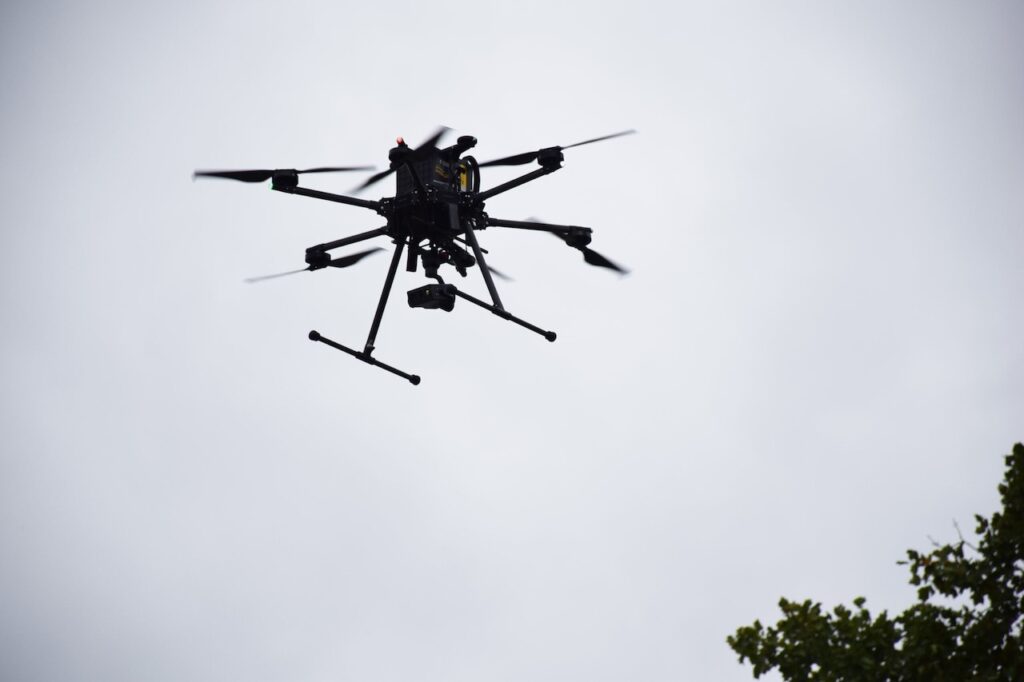AI in Defense: A Revolutionary Shift in Physical Security at the Blue Grass Army Depot
Picture this: the early hours of dawn, the world shrouded in darkness beneath a new moon. In the heart of Richmond, Kentucky, two soldiers clad in military fatigues engage in a tense grapple. They move like seasoned wrestlers within the confines of the Blue Grass Army Depot—a place where security is paramount.
As their struggle unfolds under the harsh glow of overhead floodlights, a vigilant sentry nearby squints through the murky shadows, unsure of what he sees. It’s not just any ordinary night; it’s a critical moment calling for decisive action. Yet, before he can relay his observations through his two-way radio, a sophisticated AI algorithm named Scylla swiftly processes the chaos.
A Smarter Security Solution
This scene, while fictional, illustrates an exhilarating leap into the future of security through artificial intelligence, as highlighted by Drew Walter, Deputy Assistant Secretary of Defense for Nuclear Matters. Scylla has proven itself to be a game-changing technology in safeguarding key military assets. During a recent demonstration, Walter emphasized the platform’s capability to learn quickly in real-time, which is essential for effective physical security.
“The ability to significantly cut down nuisance alarms—those pesky alerts that blindside security teams and divert attention from real threats—is one of the major improvements,” he explained. Isn’t it a relief to think that technology can help lessen burdens on our valiant security personnel?
Enhancing Defense Operations with AI
The Department of Defense (DoD) isn’t just dabbling with AI; it’s integrating sophisticated algorithms like Scylla into its core operations to enhance threat detection and surveillance capabilities. As part of a broader strategy, the Physical Security Enterprise and Analysis Group (PSEAG) is leading the charge in unifying various security efforts under one roof.
With the persistence of ever-evolving security challenges, Deputy Defense Secretary Kathleen Hicks emphasizes that using AI can significantly improve decision-making speed and accuracy. “AI-enabled systems can help accelerate decision-making processes for commanders,” she stated. When lives hang in the balance, quicker, more informed decisions are invaluable.
Scylla in Action
Chris Willoughby, the electronic security systems manager at the Depot, is fervently working on harnessing AI’s power. Scylla is being trained to analyze real-time video footage, identifying unusual behaviors and distinguishing between threats, whether armed or unarmed. Real-life scenarios during demonstrations have shown Scylla’s capacity to accurately detect intruders and suspicious activities, thus validating its potential to revolutionize security protocols.
Imagine this—Scylla detected an armed individual climbing a water tower from a distance of over a mile! With over 96% accuracy, it drastically reduces false alarms that can wreak havoc in urgent situations.
Protecting America’s Nuclear Arsenal
Walter highlights that the most significant impact of Scylla may just be in enhancing the security of the U.S. strategic nuclear capabilities. “When dealing with national deterrents, detecting and reacting to threats swiftly isn’t just desirable; it’s necessary,” he affirmed. This ensures that America’s vital military assets receive the security they require, from Trident submarines to intercontinental ballistic missiles.
Beyond Richmond, the DoD anticipates Scylla’s applications in varying scenarios—be it icy cold weather or maritime environments. Upcoming assessments at Joint Base Charleston, South Carolina, will investigate the AI’s adaptability to different military terrain and threats.
A Competitive Edge in Technology
Though AI faces numerous obstacles including new threats and environmental factors, both Walter and Hicks agree that staying ahead demands embracing emerging technologies. "For more than a decade, we have aspired to be a global leader in AI development," Hicks reinforced. By prioritizing values and leveraging strengths, the DoD is paving the way for responsible AI use.
The insights gained from Scylla’s successful test in Kentucky mark a significant milestone in the ongoing journey toward enhanced physical security and AI integration. As Walter mentions, investing in advanced technologies like Scylla isn’t just about today’s security; it’s about laying the groundwork for future innovations that will safeguard our nation.
Conclusion
As we step into a brave new world of artificial intelligence, it’s thrilling to see how tools like Scylla can sharpen military response times and strengthen our defenses. The AI Buzz Hub team is excited to see where these breakthroughs take us. Want to stay in the loop on all things AI? Subscribe to our newsletter or share this article with your fellow enthusiasts.




